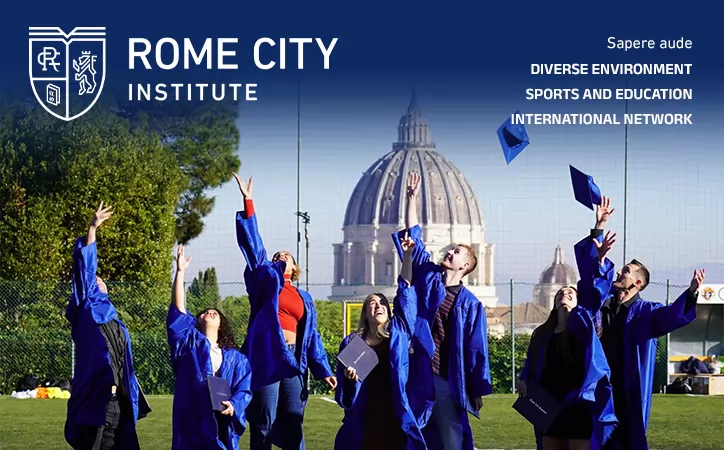All you need to know about Carlo Calenda, front runner for Mayor of Rome.
Rome will vote on its next mayor in October 2021. The field currently includes incumbent Rome mayor Virginia Raggi, who will look to secure a second term after her landslide victory in 2016 when she became the capital's first female mayor. Raggi’s main opponents are Gualtieri of the Democratic party, who will need to win the June primary elections to lock in his candidacy, and Carlo Calenda, a member of the European Parliament and founder of the Action party. The right- wing coalition has not yet announced its official candidate.
Overview
Born in Rome in 1973, Carlo Calenda grew up in an aristocratic household. His father, Fabio Calenda, is a journalist and his mother, Cristina Comencini, is a film director, screenwriter and novelist. Her 2005 film The Beast in the Heart, which is based on her novel La bestia nel cuore, was nominated for an Academy Award for Best Foreign Language Film. Calenda is also the grandson of Luigi Comencini, an Italian film director who was considered to be a master of the Commedia all'Italiana genre, and Giulia Grifeo di Partanna, a descendant of an ancient aristocratic family from Sicily.
His family’s extensive background in the film industry had an influence on Calenda from a young age. When he was 11 years old he played the lead role in the Italian mini-series Cuore which was directed by his grandfather Luigi. Despite his aristocratic background, Calenda joined the Italian Communist Youth Federation (FGCI) as an adolescent. He later went on to graduate from La Sapienza University in Rome with a law degree.
Before entering politics, Calenda had a very successful business career. After he graduated from La Sapienza, he worked for various finance companies. Then in 1998 he became a manager of Ferrari under the presidency of Luca Cordero di Montezemolo. Later, he became the marketing manager of Sky Italia in the early 2000s before reuniting with Montezemolo, who was president of Confindustria, from 2004 to 2008.
Political Career
Calenda’s first stint in politics was also with Montezemolo who founded Future Italy, a liberal centrist think tank, in 2009 and appointed Calenda as a political coordinator that same year. Then in 2012 Calenda joined the liberal political party of then prime minister Mario Monti, Civic Choice. He ran in the 2013 general election but failed to win a seat in the chamber of deputies. Calenda would however be appointed deputy minister of economic development in May 2013 by prime minister Enrico Letta and would later be confirmed in that post by Letta's successor Matteo Renzi.
Renzi appointed Calenda as Italy’s permanent representative to the European Union in January 2016. This appointment was widely criticised by both the opposition and Italian diplomats. The position that Calenda was stepping into had always been held by a diplomat and not a politician. Despite the criticism, Calenda took office as permanent representative in March 2016.
Later that same year, Calenda was appointed minister of economic development following the resignation of Federica Guida. Calenda would continue as minister in the government of Paolo Gentiloni, who had succeeded Renzi as prime minister following the constitutional referendum in December 2016.
Prior to being appointed as minister of economic development, Calenda was seen as a strong supporter of the free market and globalisation. He often expressed his support for TTIP, a proposed trade agreement between the EU and the United States. However, despite his support for the agreement, his tenure as minister became characterised by his opposition to foreign multinational corporations in his defense of Italian workers. This became especially evident when the Brazilian company Embraco, a subsidiary of the US domestic-appliance giant Whirlpool, announced it would shift production from Turin to Slovakia in early 2018. The move would cost Italy nearly 500 jobs and it was confirmed just two weeks before the elections in March that year. However, after weeks of tensions and protests, the Italian government and Embraco reached a deal to postpone the relocation and suspend the layoffs so that they could reach a better agreement. Unfortunately the issue is still on the table.
The announcement however led to a particularly bitter election campaign that saw anti-establishment movements such as the 5-Star Movement and the League gain huge ground in the polls.
After Renzi's Democratic Party (PD) was defeated in the 2018 general election, Calenda announced that he would be joining the Democrats, stating that "we must not form a new party but work to uplift the one that already exists." Calenda wanted the Democratic Party to be reorganized to oppose the populist parties that had gained widespread support around the country.
After joining the PD, Calenda became much more critical of centrist "Third Way" policies such as those promoted by Bill Clinton in the US, Tony Blair in the UK, and Renzi in Italy. Calenda believed that these kinds of policies were too optimistic and had largely led to the defeat of centre-left political parties in the western world. He has also been labelled by political commentators as a "workerist" due to his pessimistic view of globalisation and centre-left politics which he believes have failed to protect workers.
Calenda launched his political manifesto Siamo Europei ("We Are Europeans") in January 2019. His manifesto aimed to create a joint list composed by the PD and other progressive and Europeanist parties for the European election in May of that year. He received more than 270,000 votes and was elected in the North-East constituency in Italy. Calenda also serves in parliament on the Committee on Industry, Research and Energy as well as being a member of the parliament's delegation for relations with Canada.
A big change in Calenda's political career came in August 2019 when League leader Matteo Salvini tabled a motion of no-confidence in prime minister Giuseppe Conte. Salvini's move created a great deal of tension among the populist ranks. Conte submitted his resignation to President Mattarella on 20 August. The following day, the PD began talks to form a cabinet with the 5-Star Movement. The party's decision was based on pro-Europeanism, green economy, sustainable development, the fight against economic inequality, and a new immigration policy. On 28 August, the then PD leader Nicola Zingaretti announced his support for keeping Conte at the head of a new government.
Calenda strongly opposed the formation of a new government and deemed it necessary to form a new "liberal progressive" movement. On 5 September, Calenda left the PD and officially announced the foundation of his new political movement. He was joined by Matteo Richetti, a prominent PD senator who, on 10 September, announced his abstention from the vote of confidence in the new government and subsequently left the party. Calenda's new party, named Action (Azione) was founded officially on 21 November 2019. He describes his party as being “anti-populist” and “anti-souverainiste”.
On 18 October 2020, Calenda announced his intention to run for mayor of Rome in the next municipal election in 2021.





















